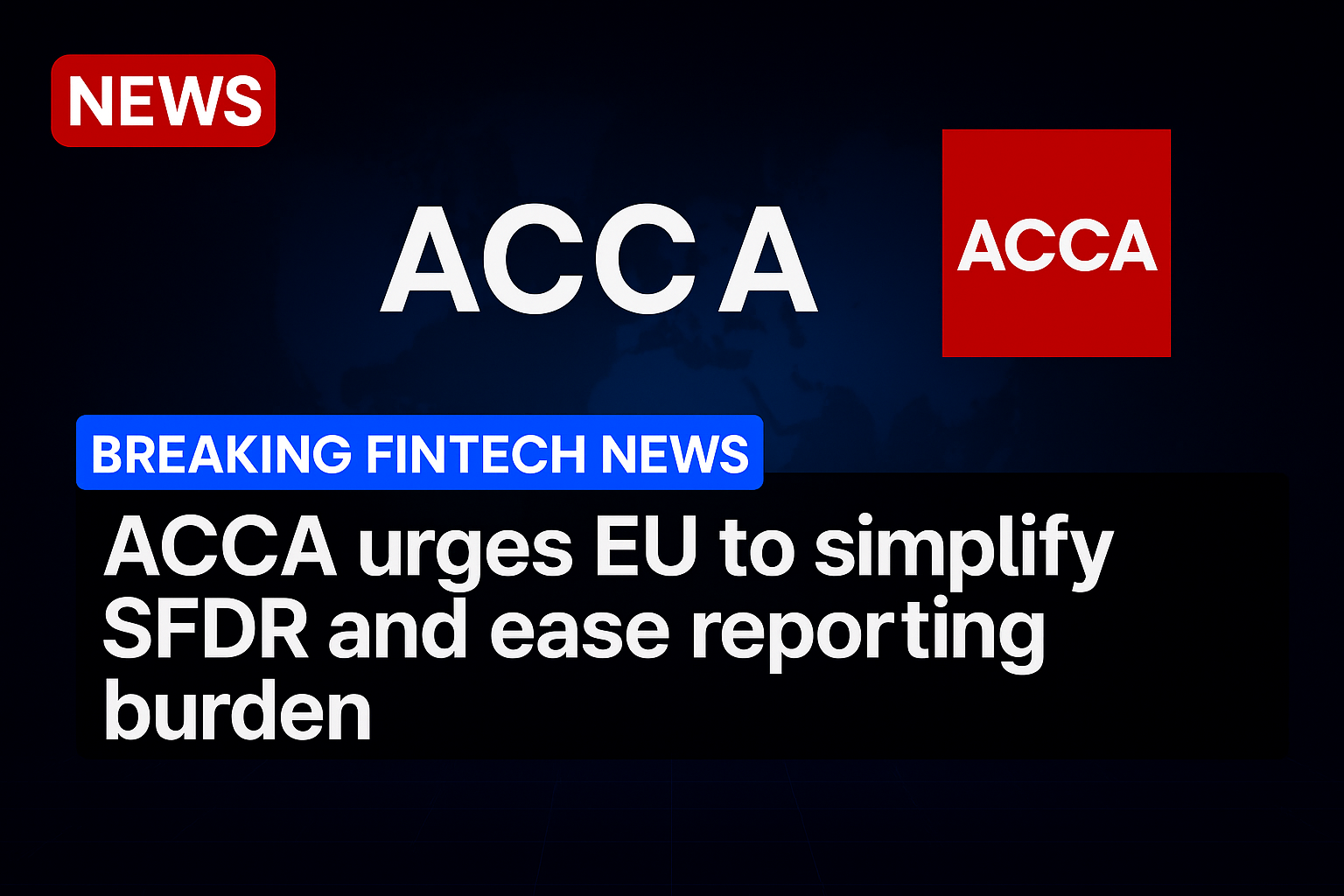The ACCA has called on the European Commission to simplify its SFDR, warning that its current complexity risks undermining the bloc’s sustainability ambitions.
In its submission to the EC’s review of SFDR, ACCA argues that excessive data demands and overly detailed reporting obligations are placing significant strain on businesses and financial market participants. According to the global accountancy body, these burdens are making it harder for companies to fully comply with the regulation, potentially limiting investment flows into sustainable projects at a time when private capital is crucial for funding the transition to a greener economy.
ACCA has urged the Commission to adopt a transition-focussed approach, offering greater flexibility and a phased implementation of the rules. The organisation supports the core aims of SFDR, which seeks to improve transparency for investors, strengthen asset manager accountability, and promote ESG integration across investment decisions. However, it stresses that without simplification, these goals may not be fully realised.
ACCA regional head of public affairs, EEMA, Vikas Aggarwal said, “At present, the SFDR requirements are too granular and complex. These constraints will prevent the SFDR’s aims and EC’s objectives being fully achieved.”
Among the main challenges identified by ACCA is the vast volume of data required, which not only drives up compliance costs but also discourages some investors from backing sustainable financial products. The organisation warns that without reforms, smaller asset managers may be locked out of sustainable finance entirely, as they often lack the resources to meet the regulation’s stringent demands.
ACCA also highlighted the regulation’s current enforcement gaps, raising concerns that some market participants may fail to comply without robust supervision. The body is urging the EC to introduce stronger enforcement mechanisms to ensure consistency across the industry.
Another area of concern is the SFDR’s emphasis on social factors within ESG, which ACCA argues is not yet sufficiently supported by clear guidance. It believes further clarification is needed on how to assess and incorporate social impacts into investment strategies, and on balancing financial performance with long-term non-financial risks.
A particular challenge, ACCA notes, is the ambiguity surrounding the regulation’s ‘do no significant harm’ test, which requires more clarity to prevent short-term financial gains from being prioritised at the expense of long-term sustainability and societal well-being.
ACCA regional lead policy and insights, EEMA & UK, Joe Fitzsimons said, “EC was a first mover in establishing SFDR to combat greenwashing and is now looking to address undue burdens by simplifying and streamlining the requirements. We encourage the EC to use this first mover advantage and revisions process as an opportunity to influence wider global regulations.”
The accountancy body also sees the review as an opportunity for the EU to take a global leadership role in sustainable finance regulation, helping to shape a more harmonised international approach to ESG disclosures.
Source: https://fintech.global/





